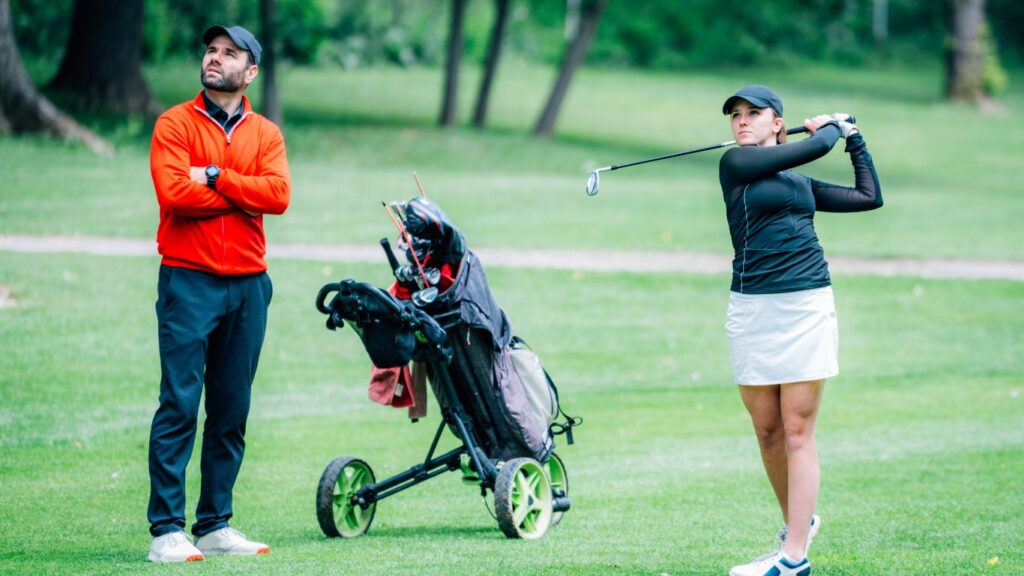Golf is a sport celebrated and played worldwide, offering different experiences across the seasons, depending on the location. In the United States, the golf season is distinct across professional tournaments, amateur tournaments, and general play, each with its schedule that caters to the diverse climate and geography of the country.
Professional Tournaments

The professional golf season in the United States primarily runs from January through November. The PGA Tour, for instance, begins its season with tournaments in Hawaii and California in January, moving through the states as the months warm up. Highlights include The Masters in April, the U.S. Open in June, The Open Championship in July (though not always held in the U.S.), and the PGA Championship in August. The season culminates with the FedEx Cup Playoffs, ending in late August or early September, followed by a wrap-up of other competitive events until November.
Amateur Tournaments
Amateur golf tournaments in the U.S. can differ significantly based on the organizing body. Still, many follow a similar seasonal pattern to professional tournaments, especially in leveraging optimal weather conditions. The most prestigious amateur events, such as the U.S. Amateur and the NCAA championships, are typically held in the summer months—from June to August—to accommodate the schedules of collegiate athletes and the best weather conditions across the country.
General Play Seasons
Due to its vast geographic and climatic diversity, the golf season varies widely across the United States. In warmer states such as Florida, Arizona, and California, golf can be played year-round, although peak seasons may avoid the hottest summer months in the desert areas. Conversely, in the northern states, the season traditionally runs from spring through fall, roughly from April to October, with courses closed during the snowy winter.
Regional Considerations:
- Northeast and Midwest: The season often starts in April and concludes in October, with some variability based on the snowfall and temperature.
- Southeast and Southwest: These regions enjoy a nearly year-round golf season, with summer months sometimes less favourable due to high temperatures and humidity.
- Pacific Northwest: Play starts later in spring due to wetter conditions and can extend into late fall, benefiting from milder weather.
FAQs
Q: Can I play golf in the northern states in the winter?
A: In the northern states, most golf courses close during winter due to snow and freezing temperatures. However, some courses may offer indoor facilities or simulators for practice during off-season months.

Q: Are there any major golf tournaments outside of the United States?
A: Yes, several prestigious golf tournaments are held outside of the U.S., including The Open Championship (often referred to as the British Open), one of the four major championships in professional golf.
Q: How can I find golf tournaments to participate in as an amateur?
A: Amateur golf tournaments are organized by various bodies, such as state golf associations, the United States Golf Association (USGA), and the Royal and Ancient Golf Club (R&A). Checking their websites for event schedules and registration details is a good starting point.
Q: What is the best time of year to play golf in the Southeast?
A: While the Southeast enjoys a nearly year-round golf season, the best times to play are spring and fall when temperatures are milder. Summer can be quite hot and humid, affecting your comfort and play.
Q: Is golf an expensive sport to get into?
A: The cost of playing golf can vary widely depending on the location, the type of course (public vs. private), and the equipment you choose. Start-up costs can be relatively high due to equipment and membership fees, but affordable options are available, such as public courses and second-hand clubs.
Conclusion
In the United States, the golf season’s timing is influenced by climate and geography and whether the play is professional, amateur, or for general leisure. While experienced and amateur tournament seasons follow specific schedules predominantly in the warmer months, general play adapts to the local climate, offering year-round opportunities in some regions. Always check local courses for particular season dates and any seasonal offers that they might have.









